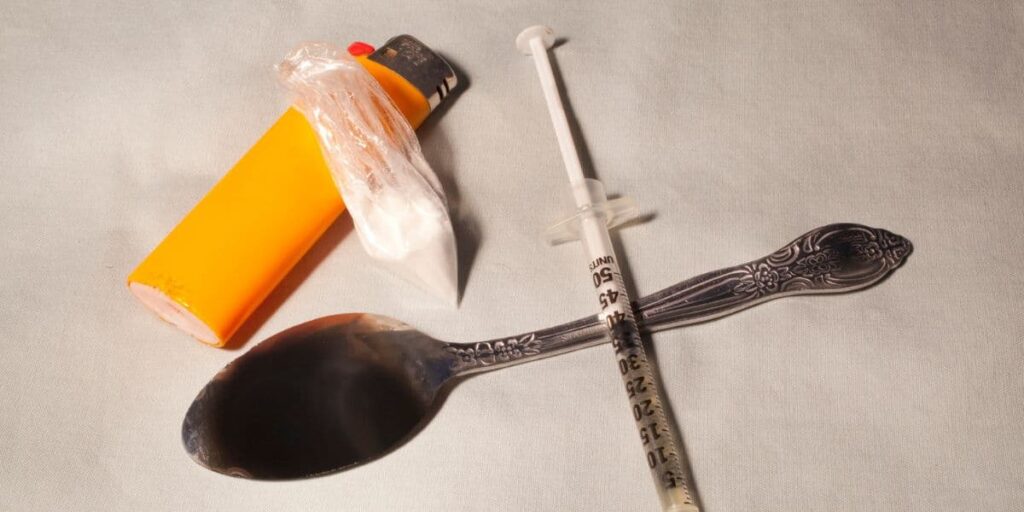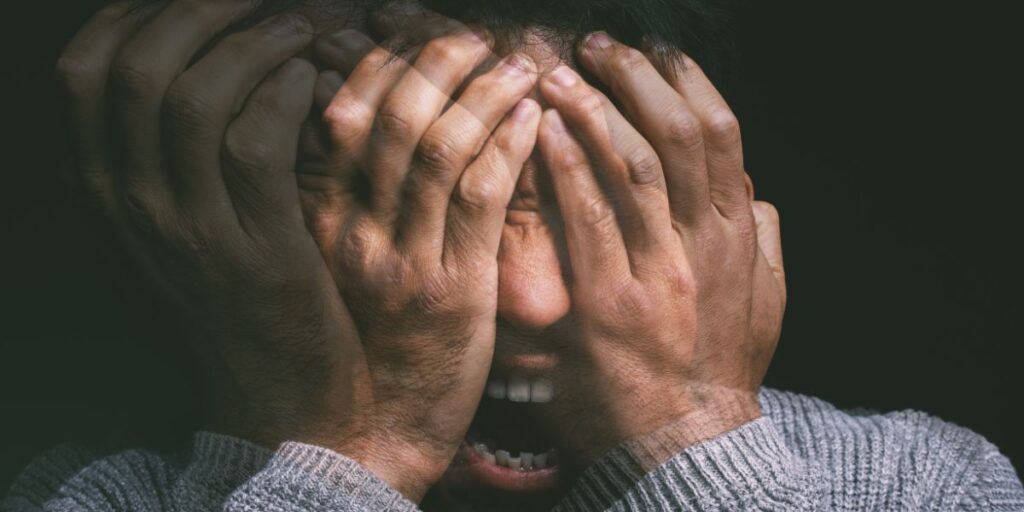PCP (Angel Dust): Effects and Dangers


PCP, once widely abused in the 1980s, has seen a resurgence in the past ten years. Initially developed in the 1950s as an intravenous anesthetic, its use was restricted to veterinary applications in 1967 following observations of post-surgical hallucinations and discomfort among patients. Currently, PCP’s lawful application is confined solely to veterinary medicine.
What Is PCP?
Phencyclidine, commonly referred to as PCP or angel dust, is an illegal and addictive drug that creates a feeling of detachment from the real world. Known for its psychedelic properties like LSD, it triggers perceptions of visuals, audio, or feelings that appear authentic but are entirely products of the mind.
PCP is a Schedule II substance in the United States. It is distinctive because it acts both as a central nervous system depressant, similar to alcohol and also as a stimulant, similar to Adderall. It is characterized as a dissociative drug, where one feels as if they’re under anesthesia yet remains partially conscious.
PCP Slang Terms
Common slang terms or street names for PCP include:
- Angel dust
- Ozone
- Whack
- Elephant
- Hog
- Peace pill
- Zoom
- Rocket fuel
When PCP is combined with marijuana, it is commonly referred to as:
- Dippers
- Wets
- Waters
- Lovelies
- Fry
- Supergrass
PCP Uses
PCP is available in multiple forms, including powder, crystals, tablets, capsules, and liquid forms. It is typically a white crystalline powder, but given its variety, it can be smoked, snorted, swallowed, or injected.
Approximately 70% of PCP users choose to smoke it, as the effects are felt rapidly within 2 to 5 minutes, and it avoids the risks associated with needle use. It is often mixed with marijuana either as a powder or by dipping it in liquid PCP. Frequently, when smoking PCP, users dip it in embalming fluid. The effects typically manifest within 15 to 30 minutes when consumed in capsule or tablet form.

Effects of PCP
The effects of PCP can vary widely depending on the method of use and dosage. They include vivid hallucinations, agitation, and hysteria shortly after use. The impacts of PCP are mind-altering and can last from 4 to 8 hours; however, they may continue for as long as 48 hours.
Physical effects of PCP include:
- Quick and superficial respiration
- Heightened blood pressure
- Increased pulse rate
- Elevated body heat
Low doses can lead to:
- A sensation of numbness all over the body
- Impaired coordination
- Impediment in speech
- An increased feeling of power and invincibility
Moderate doses of PCP, ranging from 1 mg to 5 mg, can cause:
- Calming impact
- Disregard of restraint
- Impaired articulation
- Aggressive conduct
- Vacant gaze
- Involuntary eye motion
- Inability to manage physical actions
- Excessively elevated body heat
- Convulsions
High doses of PCP, ranging from 5 mg to 10 mg, can result in:
- Mental disorder
- Illusions
- Suspicious delusions
- Inactivity
- Bewilderment
- Misunderstanding
- Convulsions
Doses exceeding 10 mg of PCP can lead to seizures, coma, and shock characterized by an unresponsive state where the individual’s eyes remain open. Excessively high doses can result in sudden death.
Long-term effects or prolonged use of PCP include:
- Symptoms similar to Schizophrenia
- Trouble with communication
- Aggressive or self-destructive ideation
- Low mood
- Nervousness
- Isolation from social activities
- Agitation
- Unusual fatigue
PCP Abuse
PCP acts by blocking NMDA receptors in the brain, which are crucial for memory, learning, and healthy brain aging. When these receptors are obstructed, the ensuing side effects can be perilously unpredictable.
PCP induces a trance-like state characterized by profound feelings of euphoria and joy. Users often experience a sense of unlimited strength and power, a lack of fear, and an inability to feel pain. PCP also causes memory loss, involuntary movements, and partial contractions of body muscles.
There are many widely accepted myths about PCP. For instance, it is commonly believed that PCP endows users with godlike strength, though this perception is primarily due to the drug’s bizarre and violent effects.
The combination of PCP’s painkilling effects, which prevent users from feeling pain, together with its dissociative properties and reduction of inhibitions, can lead people to believe they possess superhuman strength. This misconception has led to instances where individuals under the influence of PCP have walked into traffic, jumped from buildings, and, in extreme cases, inflicted severe self-harm, such as removing a part of their eye.

Dangers
The bizarre and aggressive behavior induced by PCP often leads to severe self-inflicted consequences. Most fatalities associated with PCP stem from the user’s violent actions rather than the direct physiological effects of the drug itself, such as a PCP overdose. Especially concerning is the tendency for users to inflict self-harm, a distressing consequence of the drug’s savage and harsh impacts.
Get Help for PCP Addiction
PCP is habit-forming, causing a loss of control over its consumption. Once dependency develops, the withdrawal symptoms can be intense. Stopping PCP use can lead to numerous physical and mental consequences, such as delusions, spasms, weight loss, and convulsions.
Treatment begins as soon as the problem is recognized. While there is no specific treatment exclusively for PCP addiction, residential treatment programs that incorporate behavioral therapies, such as cognitive behavioral therapy, can be effective. These therapies help individuals understand the underlying reasons for their addiction.
If you or someone you care about is addicted to PCP or is battling a substance use disorder, contact White Oak Recovery Center. Reach out now to begin your unique journey to recovery with WORC.

Am I covered for addiction treatment?
Your insurance may cover treatment. Call now for an entirely free and confidential assessment. Recovery starts with a phone call.

- Bey, Tareg and Patel, Anar, “Phencyclidine Intoxication and Adverse Effects: A Clinical and Pharmacological Review of an Illicit Drug.” Cal J Emerg Med, Feb. 2007.
- “Substance Use – Phencyclidine (PCP)” MedlinePlus: National Library of Medicine, Apr. 2022.
- “Phencyclidine.” Drug Enforcement Administration, Apr. 2023.
- Lodge, D. and Mercier, M.S., “Ketamine and Phencyclidine: The Good, The Bad, and the Unexpected.” British Journal of Pharmacology, Sep. 2015.
- Jounrey, Jonathan D., and Bentley, Thomas P., “Phencyclidine Toxicity.” StatPearls, Sep. 2023.
Medical Disclaimer:







